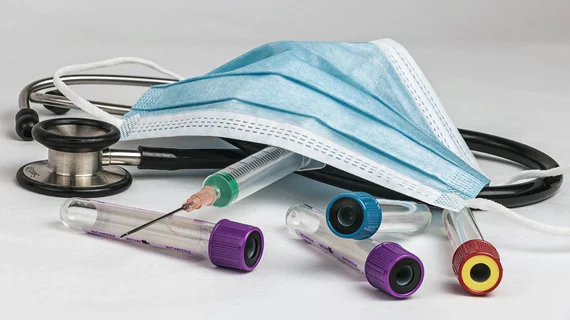Monkeypox update: Biden administration plans to have 1.6M vaccines available by year's end
The Biden administration is taking an outbreak of monkeypox seriously, announcing an enhanced nationwide vaccination strategy to mitigate the spread of the virus.
The Department of Health and Human Services (HHS) announced its strategy to vaccinate and protect those most at risk from monkeypox, a rare disease whose virus is in the same family as smallpox. HHS plans to prioritize vaccines for areas with the highest numbers of cases and provide guidance to local officials to aid planning their response.
A monkeypox outbreak was reported in the U.S. this year, and the Centers for Disease Control and Prevention (CDC) is tracking multiple cases in several countries where the disease is not usually reported, including the U.S. The virus is characterized by a rash illness.
“It’s not clear how the people were exposed to monkeypox, but early data suggest that gay, bisexual, and other men who have sex with men make up a high number of cases,” the CDC recently stated. “However, anyone who has been in close contact with someone who has monkeypox is at risk.”
HHS plans to rapidly expand access to hundreds of thousands of doses of the JYNNEOS vaccine for prophylactic use against monkeypox in areas with the highest transmission and need, using a tiered allocation system. HHS will provide 296,000 doses of JYNNEOS vaccine, of which 56,000 doses will be made available immediately, and an additional 240,000 doses will be made available in the coming weeks. In total, HHS expects to make 1.6 million doses available this year.
“Within days of the first confirmed case of monkeypox in the United States, we quickly began deploying vaccines and treatment to help protect the American public and limit the spread of the virus,” HHS Secretary Xavier Becerra said in a statement. “While monkeypox poses minimal risk to most Americans, we are doing everything we can to offer vaccines to those at high-risk of contracting the virus. This new strategy allows us to maximize the supply of currently available vaccines and reach those who are most vulnerable to the current outbreak.”
The tiered distribution system of the vaccine prioritizes jurisdictions with the highest case rates of monkeypox, where doses of JYNNEOS will be allocated based on the number of individuals at risk for monkeypox who also have pre-existing conditions, like HIV, according to HHS. The agency’s Advisory Committee on Immunization Practices recommends vaccination for high-risk individuals with a confirmed monkeypox exposure. Given the high number of contacts and difficulty identifying contacts during an outbreak, HHS will provide vaccines to individuals with confirmed and presumed monkeypox exposures.
“We are focused on making sure the public and healthcare providers are aware of the risks posed by monkeypox and that there are steps they can take –through seeking testing, vaccines and treatments – to stay healthy and stop the spread,” said CDC Director Rochelle Walensky, MD, MPH.
To date, HHS and the CDC have received requests from 32 jurisdictions, deploying more than 9,000 doses of vaccine and 300 courses of antiviral treatments.

